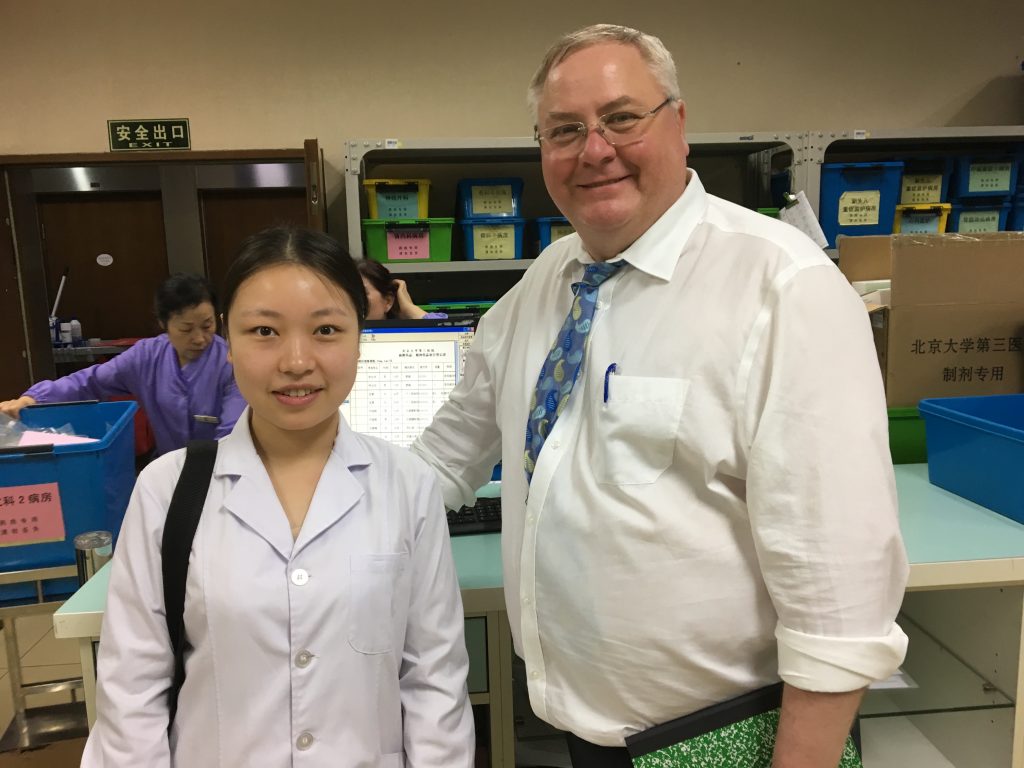
Pursuing a prestigious international PhD scholarship at the University of Manchester
After graduating from Pharmacy School at Sun Yat-Sen University in 2015, I obtained a master’s degree in clinical pharmacy from Peking University. In the three-year master’s programme, in addition to studying medical courses, I systematically studied clinical pharmacy courses such as pharmacotherapeutics, pharmaco-informatics and pharmaco-economics. At the same time, I rotated in different hospital departments as an intern for more than two years, during which I read many papers on medicine and had a strong interest in epidemiology.
In the second year of my master’s programme, I helped host visiting scholars, Dr Li-Chia Chen and Dr Douglas Steinke, from the University of Manchester (UoM) to Peking University Third Hospital. I learned that the medical system in Britain has many similarities with China, and many high-quality medical databases can be used for scientific research in the United Kingdom (UK). I was inspired to advance my degree study in epidemiology in the UK. I didn’t have a solid foundation in statistics and coding, so I decided to start with pharmacoepidemiology, which is related to my major in the master’s programme.
To find suitable universities for doing a PhD, I browsed university websites and consult the experience of senior students. Universities in the UK only require language tests (IELTS) as indispensable, while the resume, personal statement, research plan, graduation certificate and so on are required separately by schools. At a typical PhD admission interview, interviewers usually ask questions in three main aspects: (1) motivation and career plan, (2) professional competence, and (3) PhD research project.
For example, I was asked to evaluate the merits and shortcomings of a paper in pharmacoepidemiology and also talk about my research proposal. Actually, interviews in overseas universities are very relaxed. The main problem for Chinese students may be the language barrier. My first suggestion for PhD application is to prepare as early as possible and pay more attention to universities’ admission websites.
Students who apply to study abroad should have known that the tuition fees in British universities are high and the opportunities for scholarships are very few. In recent years, the Chinese government has given students studying abroad more financial support, so Chinese students can first consider the China Scholarship Council. Another source of funding is from a university or research group. This kind of information can be found on the school admission website. The FindAPhD site can also be used to search for opportunities for scholarships.
It was really a privilege that I was awarded the President’s Doctoral Scholarship (PDS) at UoM. When interviewed for the PDS, I was asked about my research plan, future career plan and what I could bring to the school if I became a PDS ambassador. It is suggested that you should know the background and expectations of the scholarship before the interview to get well prepared for the potential questions. I hope this information will be useful for those interested in pursuing a PhD programme in the UK.

Dr Xinchun Gu
President’s Doctoral Scholarship holder
PhD in pharmacoepidemiology at the University of Manchester
Nuffield Department of Primary Care Health Sciences
University of Oxford






0 Comments